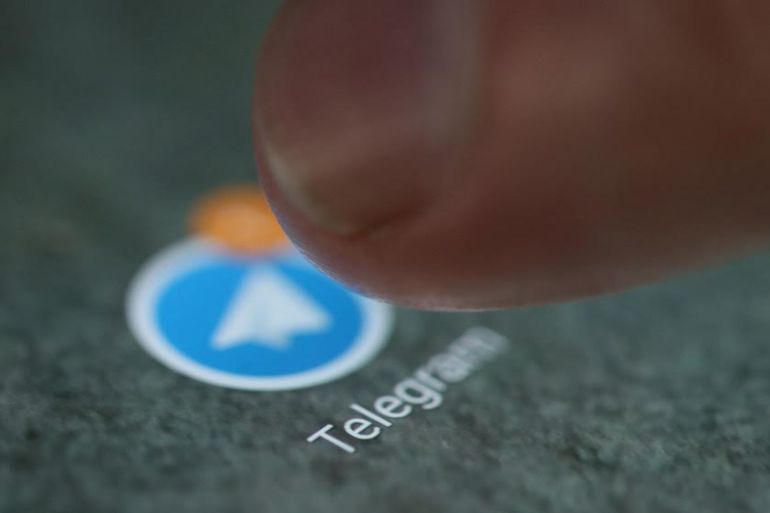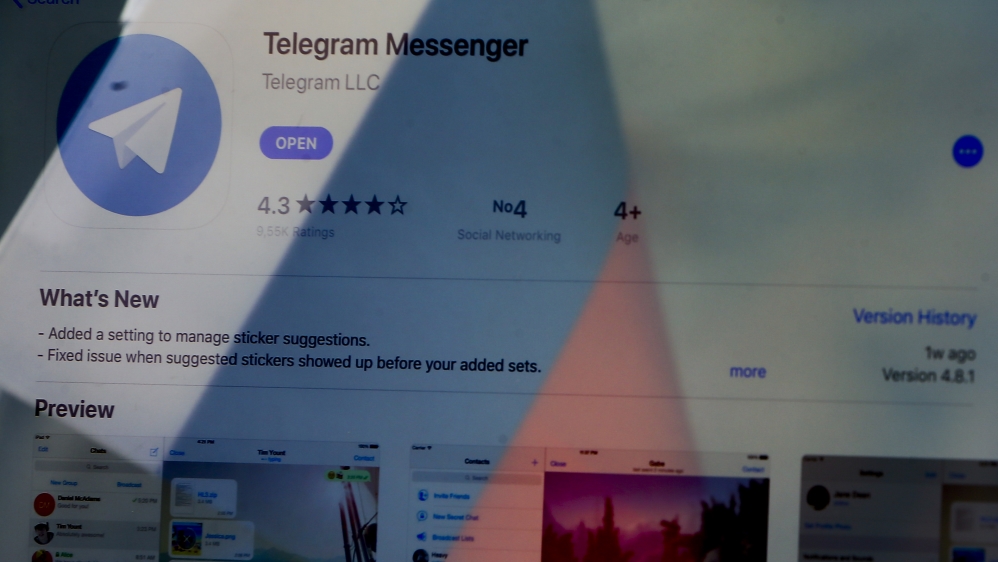Moscow court blocks use of Telegram messaging app
Official request to start blocking messaging app granted but founder pledges to use built-in systems to overcome ban.

A Russian district court has granted a request by the country’s media authority, Roskomnxdzor, to start blocking Telegram, the messaging application, because of its refusal to hand over encryption keys.
The decision was made on Friday after a 40-minute hearing in Moscow that was not attended by the company’s lawyers, at the request of Telegram’s founder and chief executive, Pavel Durov.
Keep reading
list of 4 itemsScientists discover sperm whale ‘phonetic alphabet’
TikTok owner ByteDance files lawsuit against US law forcing app’s sale
‘First time’: Wild orangutan performs self-medication
The case was brought to court last year by the FSB, Russia internal security service.
The FSB had requested that Telegram, which has more than 200 million users worldwide, hand over its encryption keys, which would allow the authorities to read all messages sent using Telegram.
Durov later announced that Telegram would use built-in systems to circumnavigate the ban.
However, he said on his page in the VK social network that he could not guarantee users would retain access to Telegram without using virtual private networks (VPNs).
A VPN is a technology used to get around restricted internet services and improve anonymity.
Encrypting technology
According to the FSB, Telegram was used extensively by “international terrorist organisations”, and its encryption technology made it hard for the security agency to track their communications.
However, Telegram refused to hand over the encryption keys, saying it would not compromise the privacy of its 200 million users around the world.
Judge Yulia Smolina said in her decision that the ban was to be implemented immediately, Russian press agency TASS reported.
“The ban on access to information will be in force until the FSB’s demands are met on providing keys for decrypting user messages,” she said.

In his reaction to Friday’s decision, Durov also implied the Russian government was motivated by money.
“The power that local governments have over IT corporations is based on money. At any given moment, a government can crash their stocks by threatening to block revenue streams from its markets and thus force these companies to do strange things,” he said.
“Privacy is not for sale, and human rights should not be compromised out of fear or greed.”
With 9.5 million users in Russia, Telegram is one of the country’s most popular encrypted messaging apps and is used extensively by private citizens and the government, which uses it, among other things, to send out messages regarding conference calls for journalists.
Iran and Indonesia
Telegram has been subject to blocks before in other countries, most notably Iran and Indonesia.
In Iran, it was used extensively by protesters who used it to plan and coordinate protests critical of the government around the country at the end of 2017.
As a result, the app was blocked for a few weeks by the Iranian government.
In Indonesia, Telegram was blocked for reasons similar to those cited by Russia. The government had said the app was used to spread “radical and terrorist propaganda”.
That ban was lifted after Indonesia claimed to have taken steps to “block negative content”.
Incidentally, Telegram has been one of the favourite methods of communication for the Islamic State of Iraq and the Levant (ISIL, also known as ISIS) group, which uses the app’s open channels feature – which can be followed by anyone using the app – to spread ISIL propaganda.
However, Telegram is also popular among human rights activists for the same reason, as it allows them to communicate relatively securely to a large group of people.